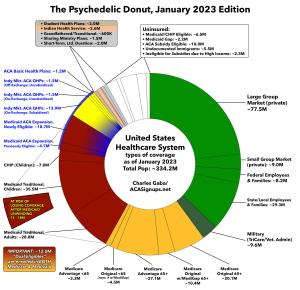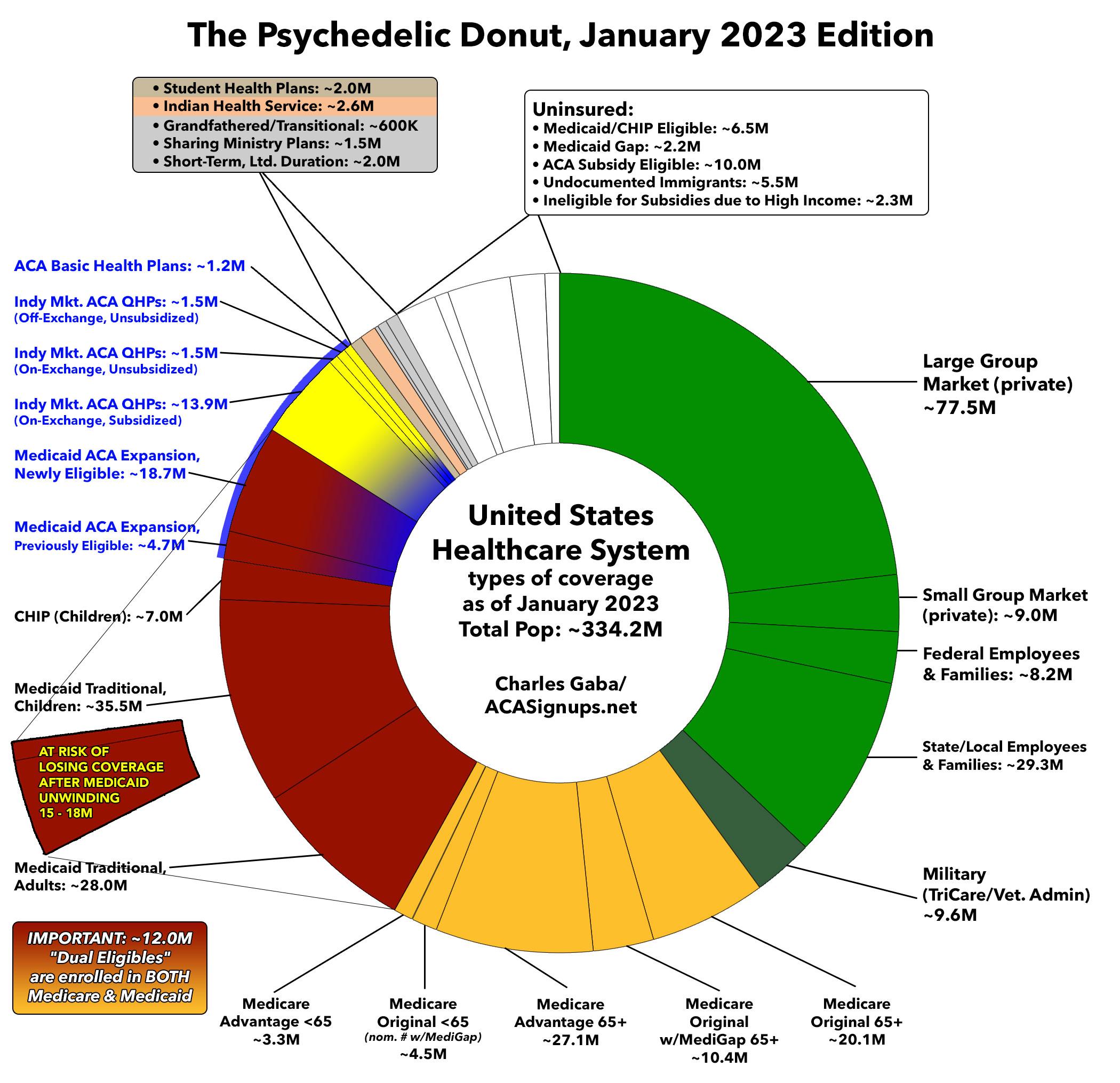How bad could the #MedicaidUnwinding debacle end up being? Here's a visualization

Over at Vox, Dylan Scott has an excellent overview of the pending Medicaid Unwinding debacle about to unfold across the country:
Perhaps the greatest success of the American health care system these last few benighted years is this surprising fact: The uninsured rate has reached a historic low of about 8 percent.
...One [COVID era] policy was likely the single largest factor. Over the past three years, under an emergency pandemic measure, states have stopped double-checking if people who are enrolled in Medicaid are still eligible for its coverage. If you were enrolled in Medicaid in March 2020, or if you became eligible at any point during the pandemic, you have remained eligible the entire time no matter what, even if your income later went up.
But in April, that will end — states will be re-checking every Medicaid enrollee’s eligibility, an enormous administrative undertaking that will put health insurance coverage for millions of Americans at risk.
The Biden administration estimates upward of 15 million people — one-sixth of the roughly 90 million Americans currently receiving Medicaid benefits — could lose coverage, a finding that independent analysts pretty much agree with. Those are coverage losses tantamount to a major economic downturn: By comparison, from 2007 to 2009, amid the worst economic downturn of most Americans’ lifetimes, an estimated 9 million Americans lost their insurance.
I advise reading the whole piece. As Scott notes, the #MedicaidUnwinding is likely to become the biggest health policy story of the year. To give an idea of what this could end up looking like, I've whipped up a revised version of my updated Psychedelic Donut from last week, which breaks out the current healthcare coverage of the entire U.S. population (all 334 million of us).
The estimates I've seen range between fifteen and eighteen million Americans losing Medicaid/CHIP coverage over the next year. As Scott notes:
Preventing that worst-case scenario will depend on states getting the word out early and often and using all of the tools available to them to reach people. Whether they will actually do that is already creating some concern. Congress has given states up to 12 months to complete the redetermination process. But in Texas, where as many as 1 million people may lose coverage, state officials have said they want to finish it in eight months, for reasons that are not clear.
The burgundy carveout slice in the lower left corner below shows what the worst-case scenario would look like:




